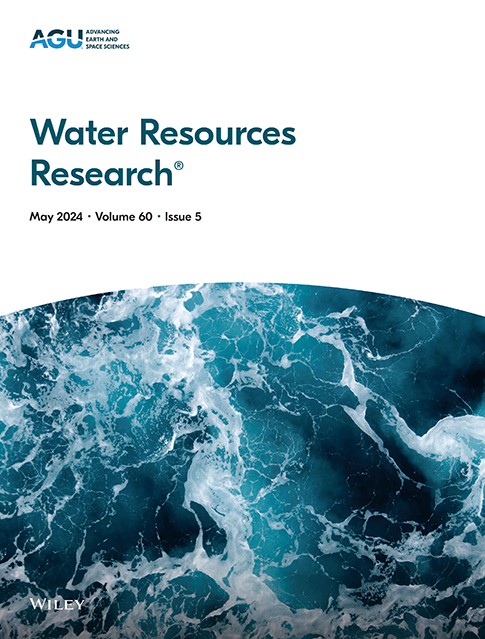Anthropogenic and Hydroclimatic Controls on the CO2 and CH4 Dynamics in Subtropical Monsoon Rivers
IF 4.6
1区 地球科学
Q2 ENVIRONMENTAL SCIENCES
引用次数: 0
Abstract
Anthropogenic perturbations have substantially altered riverine carbon cycling worldwide, exerting influences on dissolved carbon dioxide (CO2) and methane (CH4) dynamics at multiple levels. However, the magnitude and role of anthropogenic activities in modulating carbon emissions across entire river networks, as well as the influence of climatic controls, remain largely unresolved. Here, we explore the controlling factors of riverine CO2 and CH4 dynamics across 62 subtropical, monsoon-influenced streams and rivers through basin-wide seasonal measurements. We found that land use and aquatic metabolism played significant roles in regulating the spatial and temporal patterns of both gases. Increased nutrient levels and organic matter contributed to higher partial pressure of CO2 (pCO2) and CH4 (pCH4). Dissolved oxygen, stable carbon isotope of dissolved inorganic carbon, the proportion of impervious surface, catchment slope, and river width were the major predictors for pCO2. For pCH4, the major predictors were Chlorophyll a and water temperature, which influence organic matter availability and methanogenesis. Seasonal variations in pCO2 and pCH4 were strongly modulated by hydroclimatic conditions, with temperature markedly regulating river ecosystem metabolism. These findings highlight the likelihood of significant changes in riverine carbon emissions as climate changes and land use patterns evolve, thereby profoundly affecting the global carbon cycle.亚热带季风河流CO2和CH4动态的人为和水文气候控制
人为扰动已经在很大程度上改变了世界范围内的河流碳循环,在多个层面上对溶解的二氧化碳(CO2)和甲烷(CH4)动态产生影响。然而,人类活动在调节整个河网碳排放中的幅度和作用,以及气候控制的影响,在很大程度上仍未得到解决。在此,我们通过全流域的季节测量,探讨了62条受亚热带季风影响的河流的CO2和CH4动态的控制因素。研究发现,土地利用和水生代谢对两种气体的时空格局起着重要的调节作用。养分水平和有机质的增加导致CO2 (pCO2)和CH4 (pCH4)分压升高。溶解氧、溶解无机碳的稳定碳同位素、不透水面比例、流域坡度和河流宽度是pCO2的主要预测因子。对于pCH4,主要的预测因子是叶绿素a和水温,它们影响有机质有效性和甲烷生成。pCO2和pCH4的季节变化受水文气候条件的强烈调节,温度对河流生态系统代谢具有显著调节作用。这些发现强调了随着气候变化和土地利用模式的演变,河流碳排放可能发生重大变化,从而深刻影响全球碳循环。
本文章由计算机程序翻译,如有差异,请以英文原文为准。
求助全文
约1分钟内获得全文
求助全文
来源期刊

Water Resources Research
环境科学-湖沼学
CiteScore
8.80
自引率
13.00%
发文量
599
审稿时长
3.5 months
期刊介绍:
Water Resources Research (WRR) is an interdisciplinary journal that focuses on hydrology and water resources. It publishes original research in the natural and social sciences of water. It emphasizes the role of water in the Earth system, including physical, chemical, biological, and ecological processes in water resources research and management, including social, policy, and public health implications. It encompasses observational, experimental, theoretical, analytical, numerical, and data-driven approaches that advance the science of water and its management. Submissions are evaluated for their novelty, accuracy, significance, and broader implications of the findings.
 求助内容:
求助内容: 应助结果提醒方式:
应助结果提醒方式:


